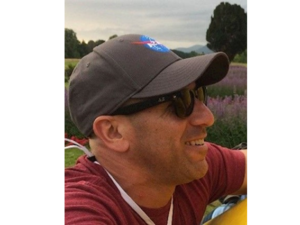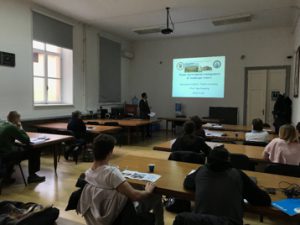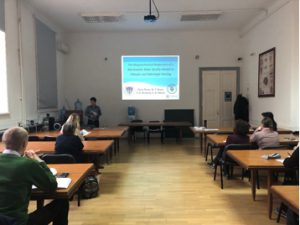Croatian association of freshwater ecologists invites you to a talk entitled Elemental bio-imaging at the nanoscale with Nano Secondary Ion Mass Spectrometry (NanoSIMS): technique and applications that will be held on Tuesday, December 3, 2019 in the lecture room BO1 , at the Department of Biology, Faculty of Science, Rooseveltov trg 6, by our guest speaker Prof. dr. Dirk Schaumlöffel (CNRS, France)
Abstract
The lecture gives an introduction to the imaging of chemical elements in biological cells and tissues at the nanoscale which can help to investigate biosorption and bioaccumulation processes at cellular and subcellular level. Scientific progress in this field is directly related to new instrumental and methodological analytical developments. Nano secondary ion mass spectrometry (NanoSIMS) is an analytical technique which relies on the sputtering of ions from a solid surface by focused positive or negative primary ion beams and the subsequent analysis of the produced secondary ions by a mass spectrometer under high vacuum. NanoSIMS allows chemical imaging of a sample surface with lateral resolution below 50 nm combined with high sensitivity and thus it is perfectly suited to localize the distribution of chemical elements with high spatial resolution in biological samples. Advantages and challenges of NanoSIMS bioimaging of chemical elements at nanometer level will be discussed. Recent examples from our laboratory will be presented showing different applications where NanoSIMS element bioimaging can be used.
Dirk Schaumlöffel has been a research professor at the French National Center for Scientific Research (CNRS) since 2011 working at the Institute of Analytical Sciences and Physicochemistry for Environment and Materials at the University of Pau (France). His scientific research focuses on analytic-chemical developments for essential and toxic trace elements in biological organisms. One of his main activities includes trace element imaging in biological cells and tissue at nanometer level by nano secondary ion mass spectrometry (NanoSIMS) with applications in environment, biomedicine and toxicology. He graduated in chemistry from the Philipps-Universität Marburg in Germany where he obtained his doctorate (Dr. rer. nat.) in 1995. After leaving the University of Marburg he continued his academic career as research scientist at the GKSS Research Center in Geesthacht, Germany, and in 2003 he entered the CNRS in France. From the University of Pau he obtained his habilitation in analytical chemistry and the title of a professor. Furthermore, Dirk Schaumlöffel is Editor-in-Chief of the Journal of Trace Elements in Medicine and Biology, General Secretary of the Federation of European Societies on Trace Elements and Minerals (FESTEM), and President of the German Society for Minerals and Trace Elements (GMS).
Croatian association of freshwater ecologists organized a talk entitled GLOBE Program and the connection with NASA satellites that was held on Wednesday, October 30, 2019 at 10:00 AM in the lecture room Vijećnica, at the Department of Biology, Faculty of Science, Rooseveltov trg 6, by our guest speaker Peter Falcon, our guest speaker from NASA’s Jet Propulsion Laboratory in Pasadena California USA. Peter is an Earth Science Education and Communication Specialist. He has worked at NASA/JPL for over 26 years, and supports multiple Earth Observing satellites. He is also a GLOBE Program partner and master trainer in atmosphere. He enjoys traveling, sports and would like to someday grow his hair back. 🙂
Abstract
Peter will give an overview of the GLOBE Program and the connection with NASA satellites. He will also discuss how NASA study’s our planet, the sun, the solar system, and Mars exploration. And is looking forward to an informal discuss with students on NASA science and engineering.
Croatian association of freshwater ecologists organized a talk entitled Long-term effects of pharmaceutically active compounds PhAC on cardiac activity and locomotion of signal crayfish Pacifastacus leniusculus that was held on Tuesday, October 15, 2019 at 14:30 (2.30 PM) in the lecture room Vijećnica, at the Department of Biology, Faculty of Science, Rooseveltov trg 6, by our guest speaker Filip Ložek, a PhD student from the University of South Bohemia, Faculty of fisheries and protection of waters, České Budějovice, Czech Republic.
Abstract
Environmental pollution by pharmaceutically active compounds (PhACs) is increasingly recognized as a major threat to the aquatic environment. The presence of PhACs in the aquatic environment is not associated with acute toxicity but can impact physiology, resulting in behaviour alterations in non-target organisms followed by ecological impact as disturbance of predator-prey relationships. To detect these etho-physiological alterations we investigate long-term effects of selected PhAC (Tramadol, Methamphetamine) at environmentally relevant levels through evaluation of cardiac activity and locomotion of signal crayfish Pacifastacus leniusculus during acute stress. We use crayfish as a model of non-target organisms which are among freshwater crustaceans, particularly susceptible to PhACs. They possess a complex physiology and exhibit complex intraspecific interactions and are keystone species in freshwater ecosystems, functioning as strong ecosystem engineers. Previous studies of PhACs effect on aquatic organisms at environmentally relevant concentrations have been primarily focused on their behaviour. The recorded effects on crayfish cardiac physiology could present a new area of research in relation to PhaC residue environmental impact.
Croatian association of freshwater ecologists organized a talk entitled Zooplankton as a tool in environmental analyses that was held on October 10, 2019 in the lecture room BO1, at the Department of Biology, Faculty of Science, Rooseveltov trg 6 by our guest speaker prof. dr. sc. Natalia Kuczyńska-Kippen, Full professor at the Department of Water Protection, Faculty of Biology, Adam Mickiewicz University in Poznań.
Prof. dr. sc. Kuczyńska-Kippen teaches courses related to ecology, aquatic sciences and methods of environmental assessment. Her field of scientific activity refers to ecology and environmental sciences, particularly the functioning of macrophyte-dominated water bodies, the indicative role of plankton, methods for assessing environmental conditions of ponds using zooplankton. Professor Kuczyńska-Kippen has published over 100 scientific and expert papers, 3 books, 28 book chapters and participated at more than 100 national and international scientific conferences, having over 200 presentations. She prepared 30 expertise and other studies commissioned by public institutions or entrepreneurs and participated in 16 projects in total, among which she was a leader of research teams in six projects received in national or international competitions.
Queen Mary University of London Field workshop
For the fifth year in a row, Croatian Association of Freshwater Ecologists organized a field workshop in the field of freshwater ecology for students of the Queen Mary University of London, UK. The workshop will be held from April 1 to April 13, 2019 in cooperation with the Department of Biology, Faculty of Science, at the Ecological Station Vrlika. The workshop will be attended by 39 students and 4 teachers of the Queen Mary University of London, and held by 17 members of our Association.
[huge_it_gallery id=”15″]
3rd Symposium on Freshwater Biology (SOBS)
LECTURES (January 25th 2019)
SUMMARY
The “superfruits” gooseberries (Ribes uva-crispa L.) and black currants (Ribes nigrum L.) have fascinating potential for culinary- and health sciences. The berries are used for a large variety of products, like juices and jams, and are in folk medicine known for constitutional effects for various ailments, due to their huge range of healthy substances, such as vitamin C. Nevertheless, little is known about the reproductive and pollination biology of these plants.
In my bachelor thesis I investigated the impact of flower visitors on the fruit set of black currants and gooseberries using bagging experiments. In addition to this, I created visitor statistics of the flower visitors by personally observing the plants and analysed their floral scent using thermal desorption gas chromatography and mass spectrometry. Finally, I determined which volatiles of the scent are active in the insect’s antennae by conducting chromatography coupled to electroantennographic detection. The results showed that the gooseberry plant mostly relies on visiting insects for pollination, while the black currant is capable of self-pollination. Nevertheless, pollinators significantly improved fruit set for both species. Flower visitors of 13 different species were found on gooseberries and 21 different species on black currants. The scent analysis revealed 23 compounds in Ribes uva-crispa and 40 compounds in Ribes nigrum. Most of the volatiles of the bouquet were active in the antennae of the tested bees and showed very slight differences among bee species. Therefore, I concluded that these volatiles play an important role in the attraction of the pollinators.
Presenting international project „The balance between nutrients, hydrodynamics and macrophytes in the freshwater ecosystem“
On Thursday, November 22nd 2018 at 10 AM, in the lecture room Vijećnica, at the Department of Biology, Faculty of Science, Rooseveltov trg 6, Zagreb, Croatian association of freshwater ecologists supported the presentation of the international project entitled „The balance between nutrients, hydrodynamics and macrophytes in the freshwater ecosystem“. Our esteemed guests are close project-partners of our colleague Prof. dr. sc. Maria Špoljar, and they arrived from the Tianjin University, China. The guests presented two interesting lectures.
Prof. dr. sc. Xueping Gao (Department of Hydraulic and Hydropower Engineering, Tianjin University, China) held the first lecture entitled “Water environment management of landscape waters”, whereas dr. sc. Chen Zhang (Associate Professor at the Department of Hydraulic and Hydropower Engineering Tianjin University, China) presented a talk entitled “How well does the mechanistic water quality model represent biogeochemical responses to climatic and hydrologic forcing?”. Thanks to our guests for interesting lectures – it was nice meeting them!
Queen Mary University of London Field workshop (April 4 to April 16, 2018)
Croatian Association of freshwater ecologists organized another field workshop in the field of freshwater ecology for students of the Queen Mary University of London, UK. The workshop was held from April 4 to April 16, 2018 in cooperation with the Department of Biology, Faculty of Science, at the Ecological Station Vrlika. The workshop was attended by 54 students and 4 teachers of the Queen Mary University of London, and it was held by 17 members of our Association.
We are glad that (for the fourth year in a row) students share their positive experience from our field workshop – even within UK:
https://blogs.studentlife.qmul.ac.uk/tag/environmentalscience-croatia/
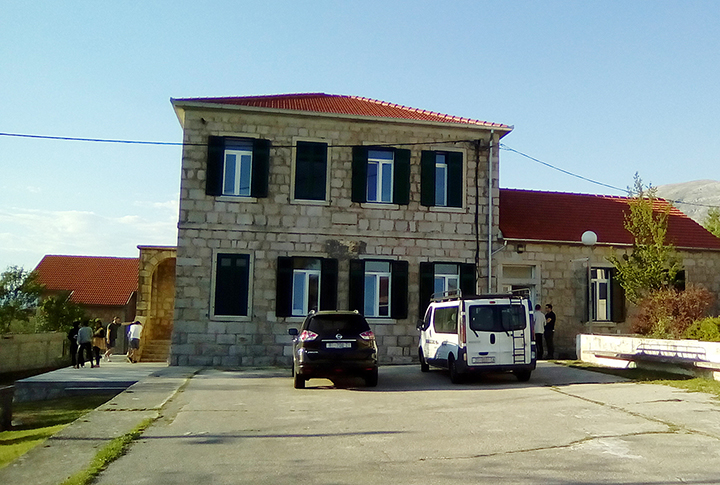
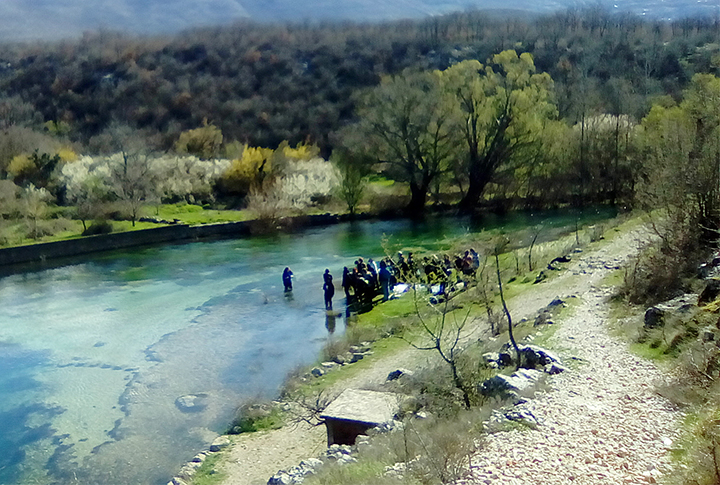
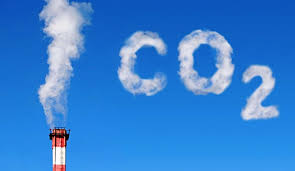 Carbon Dioxide Capture and Storage
Carbon Dioxide Capture and Storage
Croatian association of freshwater ecologists organized a talk entitled “Carbon Dioxide Capture and Storage” that was held on Friday, October 27, 2017 at 12:00 in the Library of the Division of Zoology (Department of Biology, Faculty of Science, Rooseveltov trg 6, Zagreb) by our guest speaker Mateusz Werner from the Wroclaw University of Technology (Wroclaw, Poland). Mateusz was an IAESTE-intern at the Division of Zoology, Department of Biology, Faculty of Science, University of Zagreb, supervised by M. Sertić Perić.
In his talk, Mateusz tackled the following topics:
- Climate change caused by CO2
- What is carbon dioxide capture and storage?
- CO2-sequestration projects in progress
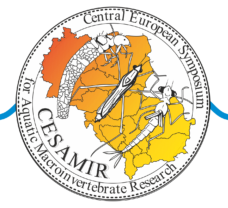 CAFE awarded one student scholarship
CAFE awarded one student scholarship
…for the participation at the 3rdCentral European Symposium for Aquatic Macroinvertebrate Research (3rdCESAMIR), Łódź, Poland. CAFE-committee decided that this year the scholarship goes to KARLA ORLIĆ – 3rd– year pregraduate student of the environmental sciences at the Department of Biology, Faculty of Science, University of Zagreb!!!
Congrats to Karla + wish you a pleasant and successful stay in Łódź, Poland. The prize-winning abstract is linked to a research investigating the influence of climate change on the relationship between indigenous crayfish speciesand the causative agent of crayfish plague. More specifically, the aim of this study was to investigate whether a 4 °C increase in water temperature (from 18 to 22 °C) will increase the virulence of Aphanomyces astaci(Schikora, 1906), the causative agent of crayfish plague. The research was supervised by Dr. Ana Bielen and Dr. Sandra Hudina. We will make sure that CAFE-members also get an opportunity to hear Karla’s presentation.
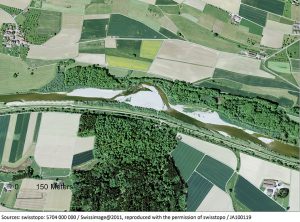
Photo sourcess: swisstopo:5704 000 000/Swissimage@2011, reproduced with the permission of swisstopo/JA100119
Environmental and economic impact assessment of river restoration in Switzerland
Croatian association of freshwater ecologists organized a talk entitled “Environmental and economic impact assessment of river restoration in Switzerland” that was held on Thursday, June 7, 2017 at 16:30 in the lecture room BO1, at the Department of Biology, Faculty of Science, Rooseveltov trg 6, by our guest speaker dr. sc. Ivana Logar from the Swiss Federal Institute of Aquatic Science and Technology (Eawag), which is a part of the ETH (Zürich) domain.
Abstract:
In Switzerland there are plans to implement large-scale river restoration measures over the next several decades. Despite this, a lack of both environmental and economic impact assessments of river restoration projects has been identified. This paper aims at closing these gaps by assessing the ecological effects of river restoration measures and estimating economic values of the resulting improvements in river ecosystem services. The former objective is achieved by carrying out on-site measurements of the physical, chemical and biological states of two different rivers. The latter goal is fulfilled by conducting a survey among the local residents. The survey applies stated preference methods (choice experiment and contingent valuation) to elicit people’s willingness to pay for further restoration projects at these two rivers. Moreover, we test for the existence and measure the extent of distance-decay and substitution effects between the two rivers.
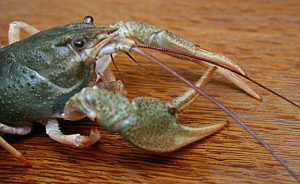 Predicting the effects of climate change on pathogen-host balance in freshwater ecosystems: a case study of indigenous european crayfish and crayfish plague
Predicting the effects of climate change on pathogen-host balance in freshwater ecosystems: a case study of indigenous european crayfish and crayfish plague
Croatian association of freshwater ecologists organized a talk entitled“Predicting the effects of climate change on pathogen-host balance in freshwater ecosystems: a case study of indigenous European crayfish and crayfish plague” that was held on Thursday, November 8, 2018 at 17:30 (5:30 PM) in the library of the Division of Zoology, at the Department of Biology, Faculty of Science, Rooseveltov trg 6, Zagreb, by our guest speaker Karla Orlić – student awarded by CAFE-scholarship to participate at the 3rd Central European Symposium for Aquatic Macroinvertebrate Research (3rd CESAMIR), Łódź, Poland. Karla presented the talk she held at the CESAMIR symposium in Poland.
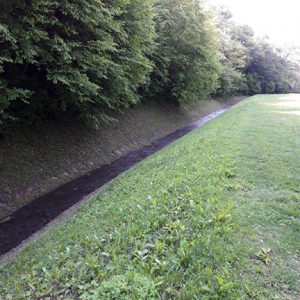
Lecture by a guest student from the Queen Mary University of London, UK
On Wednesday, June 21, 2017, we organized a lecture by Elliott Laurence Price from the Queen Mary University of London (QMUL), UK. Elliott stayed at the Department of Zoology, Faculty of Science, University of Zagreb during the past two months (May and June 2017) working on his M. Sc. thesis. His thesis supervisor is Dr. sc. Pavel Kratina (QMUL, UK), and Croatian co-mentor is our member dr. sc. Mirela Sertić Perić (Department of Biology, Faculty of Science, Zagreb). The lecture was entitled Impacts of urbanization on the structure and dynamics of temperate low order stream food webs, and here is a summary:
The rate of urbanisation in many regions across the globe is accelerating and is predicted to continue well into the late 21st century. Such urbanisation is drastically altering the conditions of aquatic habitats such as streams and lakes within those areas. Streams are easily influenced by changes to the surrounding land use, thus the reduction of riparian vegetation and more point and diffuse source pollutant inputs create a physically, chemically and ecologically altered system that has consequences for the taxonomic and functional composition of resident macroinvertebrate communities. Such changes alter the dynamics and flow of nutrients and energy through the entire food web. Using stable isotope ratios of 12C/13C and 14N/15N in whole tissues of macroinvertebrates and potential food sources, we can estimate how urbanisation may be changing the delicate balance of these food webs.
Queen Mary University of London Field workshop (2)
Following last year’s successful field workshop, at the request of colleagues from the UK, Croatian Association of freshwater ecologists organized another field workshop in the field of freshwater ecology for students of the Queen Mary University of London. The workshop was held from April 11 to April 21 in cooperation with the Department of Biology, Faculty of Science, at the Ecological Station Vrlika. The workshop was attended by 37 students and 4 teachers of the Queen Mary University of London.
We thank our colleagues from the National Park Krka and Nature Park Vransko jezero for their help in the execution of the workshop. In addition to these locations workshop was carried out on the rivers Cetina, Krčić and the cave Ćulumova špilja.
[huge_it_gallery id=”10″]
What lives in our streams? (2)
On Thursday, 31 March 2016, we continued introducing the youngest researchers – children in kindergartens with the living world of inland waters. In kindergarten Vrapče (Zagreb), the branch facility at Michael Gračanina (which was one of Croatia’s most significant natural scientists), we conducted another workshop entitled “What lives in our streams?”. The workshop included 20 children aged 4-6 years, and one of their teachers.
Again, the reactions of the children were great. Through play they met with shrimps, flatworms, mayflies, caddisflies, stoneflies, algae and a variety of other organisms. They learned where they live, how and what they eat, and what distinguished babies from adults and boys from girls.
We hope to continue this program with the aim of moving the known boundaries of education and encouraging and improving scientific literacy and environmental awareness through all levels of the education system.
[huge_it_gallery id=”9″]
Croatian association of freshwater ecologists is a full member of European Federation for Freshwater Sciences!
On 24 August 2015 Croatian association of freshwater ecologists (Cafe) was accepted to full membership in the European Federation for Freshwater Sciences.
Cafe is now registered as the body representing the interests of limnologists and freshwater scientists of Croatia in the European Federation of Freshwater Sciences.
Contacts between the Cafe and EFFS are Mirela Sertić Perić mirela.sertic.peric@biol.pmf.hr and Marko Miliša mmilisa@inet.hr.
Membership in EFFS opens the door to networking with other members, and a special framework of cooperation is offered to young scientists through twitter platform
https://twitter.com/EFYR_EFFS edited by Nuria Cid (nuria.cid@ub.edu) and blog edited by Miguel Cañedo (mcanedo.fem@gmail.com).
Both belong to a part of the EFFS, which connects young scientists: EFYR (European Fresh and Young Researchers) http://www.freshwatersciences.eu/effs/index.asp?page=EFYR\BLOG&Id=7.
Certificate of Croatian Membership
What lives in our streams?
On April 21. 2015, marking the tomorrow’s Earth Day we conducted an educational workshop entitled “What lives in our streams? “. The goal was to encourage research curiosity, scientific literacy and environmental awareness in children of preschool age, in kindergarten “Žabac ” (Frog) (in Srednjaci, Zagreb). Twenty children aged 3-5 years and their 2 teachers participated. The reactions of the children (and the teachers J) were marvelous. The children were delighted with the independent study of live freshwater organisms using simple investigative tools (hand-held magnifying glass, plastic tweezers and a dropper). They were researching through playing and drawing the organisms they saw. The teachers and the director of the kindergarten praised the initiative and our way of working with preschool children. We hope to continue with this type of training in order to make our contribution in moving the boundaries of education and in the promotion and development of scientific literacy and environmental awareness through all levels of the education.
[huge_it_gallery id=”7″]
We carried out a successful workshop for Students of the Queen Mary University of London
Croatian Association of freshwater ecologists organized an educational workshop in the topics of fieldwork in freshwater ecology for university students of the Queen Mary University of London. The workshop was held in cooperation with the Department of Biology, Faculty of Science, and the Ecological Station ‘Vrlika’. It took place from April 9 to 21. The workshop was attended by 51 students and 4 teachers of the Queen Mary University of London.
The workshop was lead by 13 Croatian experts including colleagues from the Croatian Natural History Museum, Kopački Rit Nature Park and Lake Vrana Nature Park and the Krka National Park. In addition to these locations workshop is conducted on rivers Cetina, Krčić and Ćulumova špilja cave and Channel of St. Anthony.
Feedback of the students was great, and the teachers have expressed their wish that this workshop should permanently fit into curriculum of the Queen Mary University of London.
[huge_it_gallery id=”3″]
The first symposium of freshwater biology
On Friday, 20. 2. 2015, we organized The first symposium of freshwater biology. Twenty talks were delivered in four symposium sessions. The lecturers were freshwater ecologists from Zagreb and Osijek universities and the Croatian Waters company.
Assoc. Prof. Ivančica Ternjej opened the symposium with the plenary lecture on the historical development of freshwater biology in Croatia.
Lectures included a wide range of research topics: ecology, taxonomy, bio-geography, phylogeny, and applied biology. Approximately one hundred participants attended the symposium from various public domain (Croatian Waters, State Institute for Nature Protection, Fund for Environmental Protection and Energy Efficiency, Krka and Plitvice Lakes National Park, PP Vrana, Zagreb ZOO) and private sector companies (Elektroprojekt Oikon ). Also, teachers and associates of the Department of Biology, Faculty of Science and the Department of Biology, JJ Strossmayer University of Osijek.
We have especially glad and prod that a large number of students attended.
The conclusion of the symposium is that there is a great interest in freshwater research and considerable potential in this area in the scientific and technical topics, and that Croatian association of freshwater ecologists (CAFE) will continue to undertake activities towards the realization of this potential and highlighting the value of freshwater biology.
We thank the speakers for their great talks, but also all those who supported this symposium. We hope that we are all took home beautiful impressions and that we will meet in similar occasions.
The symposium organized by the Croatian Association of freshwater ecologists took place in the Biology Department of the Faculty of Science that provided all the facilities – Thank you.
LECTURES
Dubravka Čerba
The role of chironomid larvae in the diet of fish
Tvrtko Dražina
Roundworms, tardigrades and rotifers in the subterranean ecosystems – Review and new faunal data
Maria Gligor Udovič
Functional classification of phytoplankton in freshwater systems, Croatian
Mladen Kerovec
Croatian oligochaetes: species diversity, distribution and comparison with neighboring countries
Jasna Leitner
Invasive species of shellfish in Croatian freshwater ecosystems
Zoran Marčić
The scientific significance of professional studies
Renata Matoničkin Kepčija
Adaptations of protozoa to variable environment of travertine barriers
Zlatko Mihaljevic
Distribution and ecological conditionality of chironomid larvae in karst lakes
Marko Miliša
Measures for conservation of the ecological integrity of the exploited karst watercourses in chaning climate
Ana Previšić
Cryptic diversity of aquatic insects in the Dinarides: subfamily Drusinae (Limnephilidae, Trichoptera)
Mirela Sertić
The dynamics of invertebrate fauna drift and benthos in glacial streams under the influence of sudden environmental changes
Igor Stankovic
Water and coastal vegetation along the navigable course of the Danube River
Natasha Turić
The distribution of Graphoderus bilineatus (De Geer, 1775) in Croatia
Tanja Žuna Pfeiffer, Filip Stević, Dubravka Špoljarić Maronić, Melita Mihaljević
The development of epixylon-algae in the floodplain of the Danube
Ivana Buj
Hidden compartments of Croatian freshwater biodiversity: evolutionary emergence and characteristics of hybrid fish biotypes
Mišel Jelić
Phylogenetic and phylogeographic features of the white-clawed crayfish (Austropotamobius pallipes complex) in rivers of the Adriatic Basin
Sanja Gottstein
Survival strategy of amphipods in intermittent springs – The case of the Krčić spring
Antun Alegro
Mosses in Croatian rivers
[huge_it_gallery id=”2″]
Visiting lecture
On March 31, 2014. freshwater ecologist Dr. Sc. Tadeusz Fleituch (Institute of Nature Conservation @ Polish Academy of Sciences, Krakow, Poland) gave a lecture presenting the results published in the Science journal under the title: ‘Functional indicators as complementary metrics for assessing river ecosystem status and health’. The talk was organized within the program of international cooperation of the University of Zagreb and with additional financial support from the Department of Biology, Faculty of Science.
The opening presentation of the newly constituted Croatian association of freshwater ecologists!
Presentation of the Croatian association of freshwater ecologists (Cafe) was held in the zoology library, Department of Biology, Faculty of Science, at Rooseveltov trg 6, on Tuesday, 16 September 2014 at 12.30. This gathering included around twenty colleagues, freshwater scientists, as well as experts in other areas of ecology. The event was organized with the aim of informing colleagues of similar interests with the activities and objectives of the Association. All those interested in the research and preservation of Croatian inland waters are invited to participate in the work of the Association, with their own ideas, or as part of existing activities.

